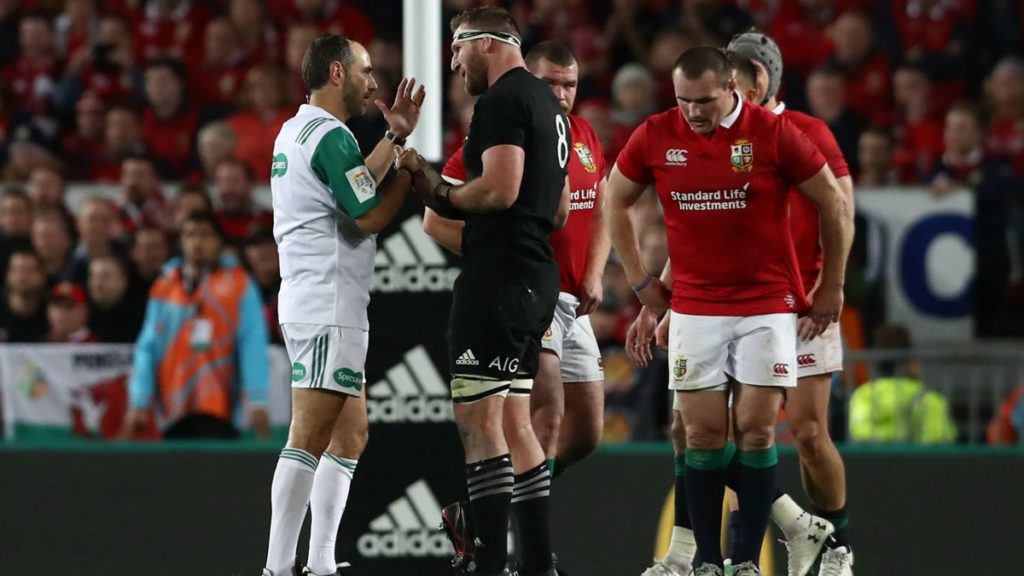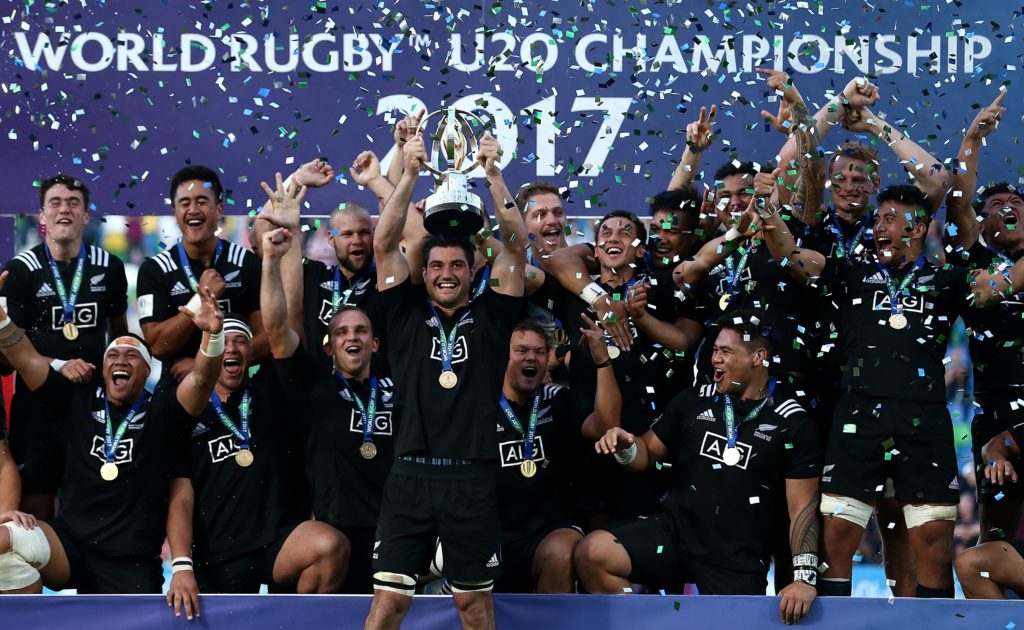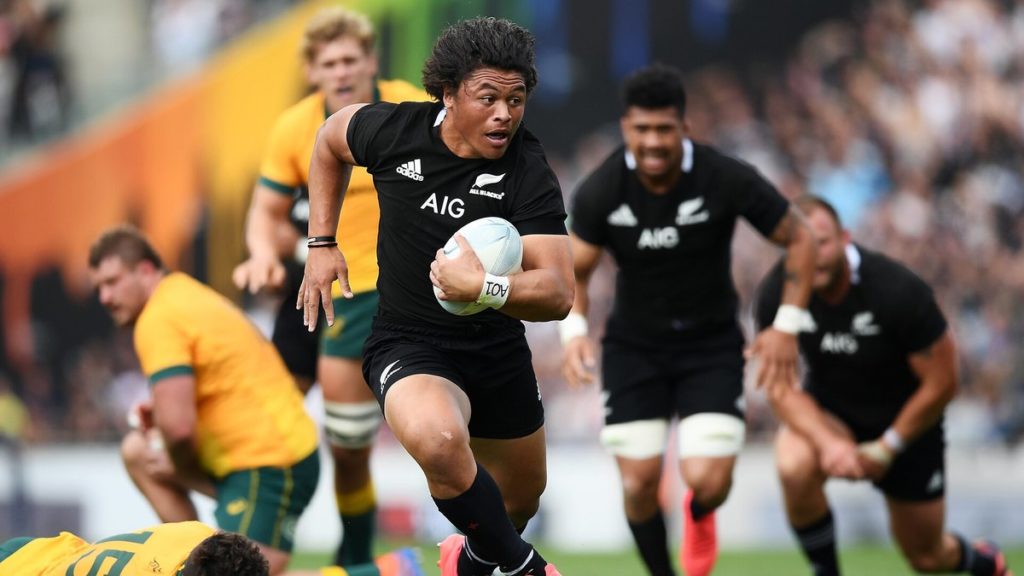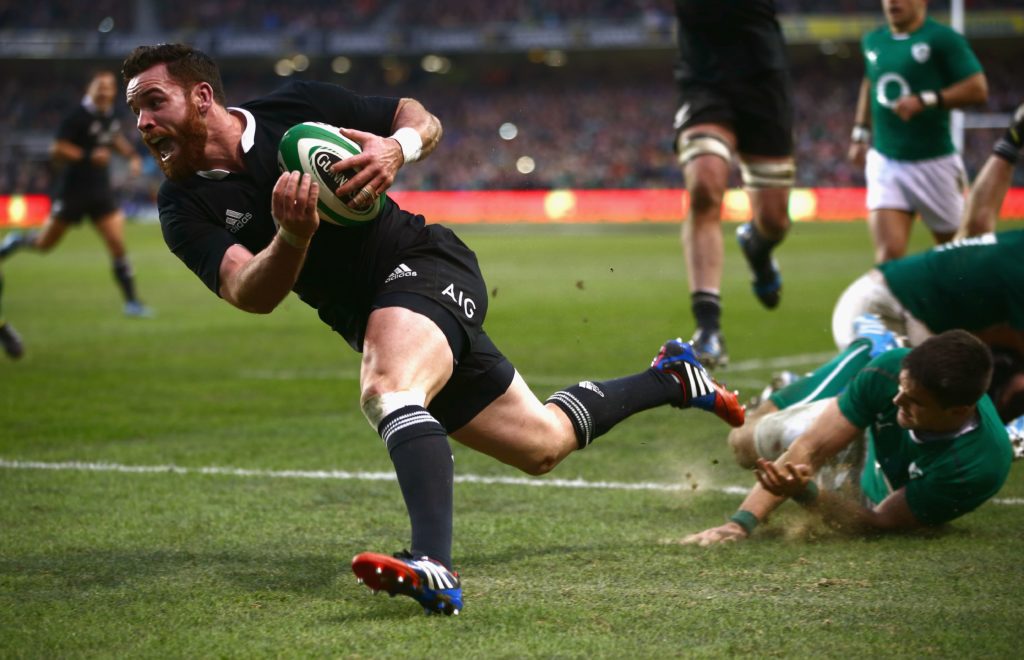The All Blacks’ historic first loss to Argentina is just another slither of evidence that New Zealand’s grip of global rugby dominance is slipping away, albeit in less dramatic fashion than some rhetoric would suggest.
This has been on-going since the Lions tour of 2017, when a shock 1-1 series draw ended a eight-year undefeated streak at home.
The British & Irish Lions’ victory in the second test against an all-time great All Blacks side in hindsight now looks like the first sign in the end of a glorious era of All Black rugby.
It was the surest indication that the powers of the North had caught up to the great rugby nation of New Zealand, at least in a combined capacity.
Here were the 2015 world champions, less than two years removed from securing back-to-back World Cups, pushed to the limits in every way. Had Romain Poite reversed his final call and handed the All Blacks a chance to win the series, it would have done little to dispel this fact.

The All Blacks were locked into a competitive series at home unlike anything they had experienced since the 2009 Springboks.
Since that 2017 series the All Blacks have slowly given up more losses, the second loss to Ireland, this time at full strength followed in Dublin, a home loss to the Springboks, a record defeat to the Wallabies in Perth, a semi-final defeat to England and now Argentina.
For any other nation, the losses that the All Blacks have endured would be the standard anticipated cyclical drops in form that come with playing a competitive sport on a world stage. But New Zealand don’t suffer drops in form – and certainly not over a four-year cycle.
Some believed that 2016 would be the ‘definitive’ end of this golden era after a host of All Blacks centurions retired, but few overseas pundits expected they would extend their run by a couple of years.
That’s likely thanks at least in part to New Zealand’s world champion under-20 side from 2011, widely regarded as one of the best ever seen, who have entered their peak years as athletes and filtered through the All Black side over the last decade.
For any other nation, the losses that the All Blacks have endured would be the standard anticipated cyclical drops in form that come with playing a competitive sport on a world stage. But New Zealand don’t suffer drops in form – and certainly not over a four-year cycle.
The likes of Beauden Barrett, TJ Perenara, Lima Sopoaga, Brodie Retallick, Codie Taylor, Sam Cane, Waisake Naholo proved to be perfect supporting players behind the McCaws, Nonus, Mealamus and Carters during the 2015 World Cup run.
By 2016 they were ready to pick up the slack, with many as established starters. Beauden Barrett became the world’s best player and secured back-to-back World Rugby Player of the Year awards.
It gave the Hansen-era an extra boost to make a final surge towards a third consecutive William Webb Ellis trophy, but the chase ultimately fell short at the hands of England in the semi-final.
The under-20 factor may go some way to explaining the state of the All Blacks now.
Fast forward to 2020 and the magic crop of 2011 are on the verge of their twilight years, but with less supporting depth than their predecessors. Just seven of the 2011 year group now remain in New Zealand rugby.
After winning the first four iterations of the under-20 championship from 2008 to 2011, New Zealand have captured just two since, in 2015 and 2017.

The tournament has continued to yield historically bad results, highlighting New Zealand’s growing parity with the rest of the rugby world at age level rugby.
This could be because the main focus for the New Zealand under-20 side has been to produce Super Rugby-ready players, not to win under-20 championships.
Whilst this takes a ‘long-term’ view of success, the players’ longevity at the next level has been up-and-down, with a few lean years in between.
The 2012 squad had just three players remaining on Super Rugby rosters in 2020 and produced just three All Blacks.
The 2013 squad produced four All Blacks and have nine players remaining on Super Rugby teams.
The 2014 crop, who would be at the prime age of 25 in 2020, have around half of their squad playing at Super Rugby level and have produced six All Blacks.
Each of these year groups are unlikely to produce more All Blacks, as history shows most transition earlier than later.
However, these three crops are important to highlight as this World Cup cycle is supposed to be their time to shine, but there are probably fewer than anticipated still hanging around.
Whilst these year groups have produced some excellent players like Ardie Savea and Damian McKenzie, what’s more apparent is the lack of starting quality international players available to the All Blacks from these under-20 teams.
The good news is the title winning under-20 sides of ’15 and ’17 have 75 percent of their take playing Super Rugby, and some are now filtering into the national fold.
Will Jordan, Dalton Papalii, Caleb Clarke, and Peter Umaga-Jensen have all debuted, many this year, but are all young players that still need plenty of time to build experience.

The All Blacks are perhaps suffering from their first real ‘down years’ of decreased under-20 production, just as the rest of the world has been rising over the last decade.
At the very least, this has made it very difficult to maintain a win-rate of 90 percent. Throw in growing international parity and a recent coaching transition, and that task gets much harder.
While the All Blacks might not be able to power to prolific wins anymore, the new coaching staff are rightfully being questioned, even if the criticism is off the mark in some quarters.
The bottom line is the team has not shown smarts, game management or consistent execution so far in 2020, which illustrates the hurdles they must overcome to become a champion side. Every game this season has been winnable, yet they have been unwilling to grinding out ugly test wins.
One realisation they must perhaps make is to recognise that the high-scoring, blow-teams-off-the-park type of rugby is not going to happen as frequently anymore.
If the opposition capitulates as the Wallabies did in Sydney, fine, but if they show up they need to play things differently. This evidence has been staring at them in the face since the Lions tour.
Another late game calamity in Wellington to start the season, going for a try and not taking a drop goal, left a win on the table much like the Springboks loss in 2018.
Every game this season has been winnable, yet they have been unwilling to grinding out ugly test wins.
Despite all the hysteria in Brisbane against the Wallabies with the red cards, they lost by two points. Unbridled arrogance cost them late in the first half that may have swung the match.
At the end of the first stanza they used four penalties to kick for touch. After failing to score a try on all four occasions and with time up on the clock and a fifth penalty on offer, they again kicked to touch – only to lose the lineout throw and end the half locked at 8-all.
Three points to end the first half would have made Tupou Vaa’i’s late score with a few minutes to go the game-winner.
Contrast this with the approach of a Richie McCaw-led side against the Wallabies in 2014 at the exact same ground.
With Australia on top 22-12 in the 52nd minute, the All Blacks opted to kick three points to stay within striking distance and close the gap to seven.
Quite an innocuous decision that later proved extremely valuable when Malakai Fekitoa burst through to score with five seconds remaining. Colin Slade’s conversion gave the side a one-point 29-28 win on a night where Australia were the better side.
In another famous win over Ireland in 2013, McCaw’s side were down 22-7 at half time.
After 13 minutes of play in the second half they had enjoyed most of the possession, but had little reward. Three 22-entries were spent getting nothing, the first finished with an intercept off Ma’a Nonu, the second became a stolen lineout throw off Dane Coles, and the third ended in another turnover from Nonu shortly after Israel Dagg was held up over the line.
When they were gifted a penalty five out on Ireland’s exit kick, the All Blacks opted to kick a penalty goal to reduce the deficit to 22-10. They didn’t kick to the corner and try to bully Ireland having just failed three times in a row.
They reduced the led to two scores instead of three, and low and behold they were still in the game at the end where an extra time try to Ryan Crotty on the last possession of the game stole a victory in Dublin.

Looking at this past weekend, there was little difference between the sides at Bankwest Stadium other than the respect the Pumas showed the All Blacks.
While the Pumas kicked every available three, the All Blacks kicked nearly everything to the corner.
The insistence of the side to kick for the corner from penalties in search of tries against Argentina failed them again.
While their launches resulted in turnover after turnover, the Pumas quietly built a 16-3 lead by halftime, without actually breaching the All Blacks defence in any great capacity.
Not every penalty has to be kicked at goal, but some smarter game management could have completely changed this game.
Having already failed multiple times after breaching the Argentina 22, on the stroke of halftime the All Blacks turned down a kickable penalty goal to kick for the corner. Richie Mo’unga kicked it dead and Argentina were able to end the half.
Two minutes after halftime, a Sam Cane ruck penalty just over halfway served up a long-range penalty option within Jordie Barrett’s range – but the All Blacks again kicked to the sideline.
Looking at this past weekend, there was little difference between the sides at Bankwest Stadium other than the respect the Pumas showed the All Blacks.
Within three minutes of play, the All Blacks ignored six possible points that would have closed the gap to within one try, 16-9, with nearly an entire half of rugby still to unfold.
Just one more penalty goal taken would have meant the conversion on Caleb Clarke’s 81st minute try would have been to win the match, if the game had still played out the same way.
These All Blacks are not prepared to a win a test on the back of penalties, instead only through racking up tries to pump up the scoreboard in chest-beating fashion..
Given the late game brain fades of the last few years, this side still isn’t taking on board the lessons being taught to them.
There is a balance to be had, especially if you have already been repelled multiple times by the defence. Keep the scoreboard ticking and stay in the game. By not doing so, they allowed Argentina to seal the game early in the 75th minute with Sanchez’s sixth penalty of the match.

The All Blacks have not executed to the level they like but they are showing no ability to win ugly, a trait most great teams have. You can play badly and win, if you give yourself the chance to.
Right now, they are still hypnotised by trying to keep up with an era of All Black rugby that is no longer possible to maintain.
The one promising aspect of this coaching staff has been their ability to adapt and react when things aren’t working.
After rolling out the same structures as last year in the first test to an uninspiring draw, they pivoted to a power-based game plan at Eden Park and installed new patterns that would suit Richie Mo’unga.
The game plan change targeted the Wallabies with a power-based attack which they could not stop, and resulted in a 27-7 win.
They kept this power-based plan for Argentina and were unfortunately met by ferocious Pumas tackling in the interior channels.
One-out carrying hit brick walls, runners were held up off the ground, and the All Blacks’ one-dimensional approach failed to make inroads.
The set-piece attack that went after debutant centre Santiago Chocobares largely failed to execute, and when it did, the young Argentine made great reads.
The All Blacks will get the chance to show if they can change tack again in two weeks’ time.
If they want to win at 90 percent however, they need to be able to do this during games, not after the fact, and play the hand they are dealt instead of trying to pummel every team they come up against by a cricket score.



Comments
Join free and tell us what you really think!
Sign up for free